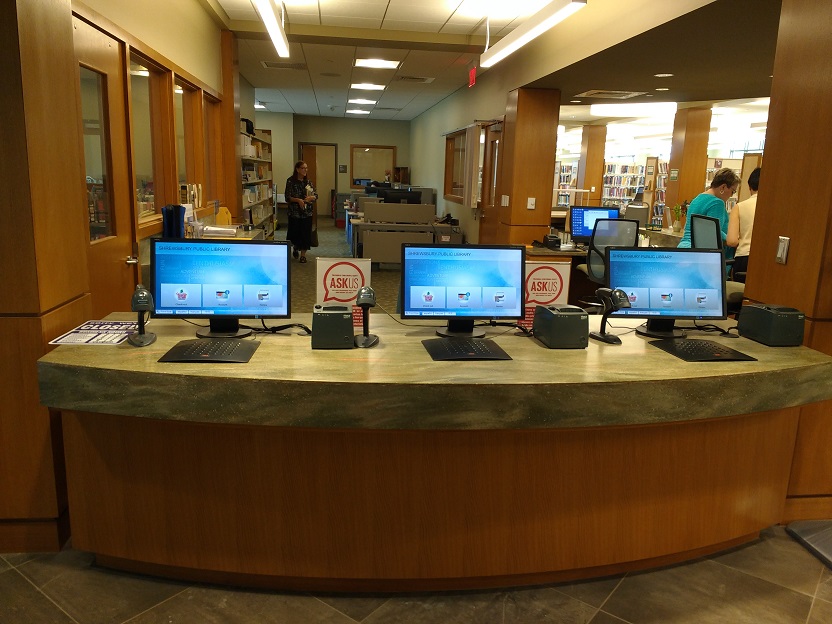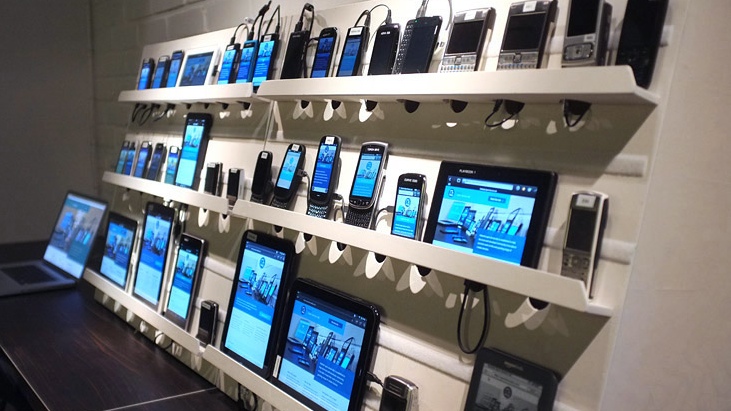callan \ blog
october 2, 2015
Last week I gave a presentation on the future of technology as it applies to the public library space. I know I'm not alone in cringing when I hear certain elements of the whole "future of libraries" shtick, but I do think a productive discussion can coalesce around a less trend-driven, more nuanced take on what that can mean. In planning this little talk, I began by asking the folks in my network, many of whom are public librarians (vs. non-boots-on-the-ground people working in advisory services, such as myself), for their thoughts on "the future." The majority of these people work in high-need, busy systems in and around Boston; their communities tend to be impacted by some of the sharpest income inequality and consequent digital divides in Massachusetts.
Here's the prez, shouldja wanna see. I used reveal.js, a HTML presentation framework for people who can't stop thinking in markup.
From these conversations, I noticed two distinct tracts of inequality and digital divide - the ones that exist in communities and between patrons, and the ones that exist within the profession itself, whether it's between individual staff members, or between one struggling library and the one in the affluent next-town-over. I'd been thinking about this since attending the advocacy summit put on by the New England Library Association (NELA) back in July. The woman who set me up with my first [temp] job in a library was there; she's spent a long time working around and thinking about staffing issues in the profession. Over lunch, she asked our group to really consider why librarians are so pressured advocate for libraries but not ever for librarians. It's a fair question, and I admit I'd never given it much thought.
Why is it that the people working in these buildings are so often the last thing considered, if they ever get considered at all? Even we don't tend to give ourselves much consideration. Last year, I visited an architecture class at Mass Art who'd been tasked with designing a new branch of the Boston Public Library. The students had tons of great ideas for innovative service design and green infrastructure, but staff spaces were almost always an afterthought. Offices and desks were often one or two floors above service areas, or relegated to the basement. Aside from there being no way a functional library can be set up that way - I mean, you gotta have a circulation desk somewhere, self-checkout or no - it's hard to imagine staff working and thinking to the fullest extent when they're crammed in hermetically sealed subterranean cubbyholes.

Self-checkout: not just for the grocery store anymore (at the brand-new Shrewsbury Public Library).
I know we lean self-sacrificial, willing to deflect our needs on behalf of patrons, but this all ties into serving our communities as well. Many of the best direct grant applications my employer has received in the past few years revolve around the theme of "customer service in the digital age." They typically emphasize customer service training and tech training for staff, recognizing the challenges of helping patrons troubleshoot and work with new devices, software, and web applications when those things are in constant flux. Users approach librarians with questions about tech because they approach them with questions about everything else. Librarians can find this frustrating, even embarrassing, because they often haven't had the training to work with this tech themselves.
While nobody's expected to become the master of everything digital, there are strategies in customer service (and IT-style troubleshooting) that can be taught. It's easy to get irritated and impatient when you're feeling less than confident in your own abilities to help somebody, but that's when you can shelve the expert role, stop feeling you've got to have all the answers, and start looking for a solution right alongside your troubleshootee. And we all stand to benefit from sharing what we do know, both in our immediate environs and in the field at large.

...ugh.
shameless plug zone
If you're reading this post, are in or around New England, and/or thinking about attending the 2016 NELA Conference in Danvers, I'll be speaking on a panel about this very topic. "Don't Turn It Off & Back On Again: How Library IT Workers Can Use Reference Skills On the Job" features yours truly and two friends working in similar spaces at academic and corporate libraries, moderated by a school librarian. My hope is that it'll be participant-driven; I think we've got a lot to talk about around this issue, and patrons of all kinds of library services stand to benefit from a more nuanced approach to troubleshooting, digital instruction, and application & web development.